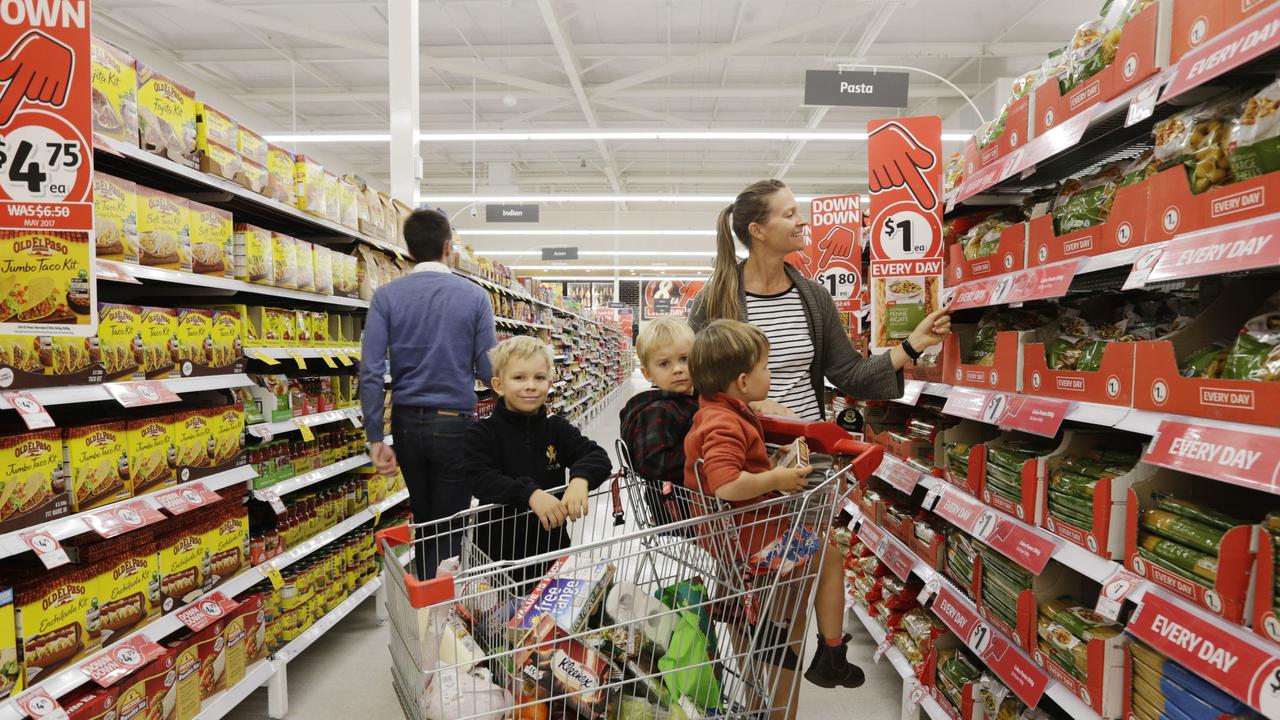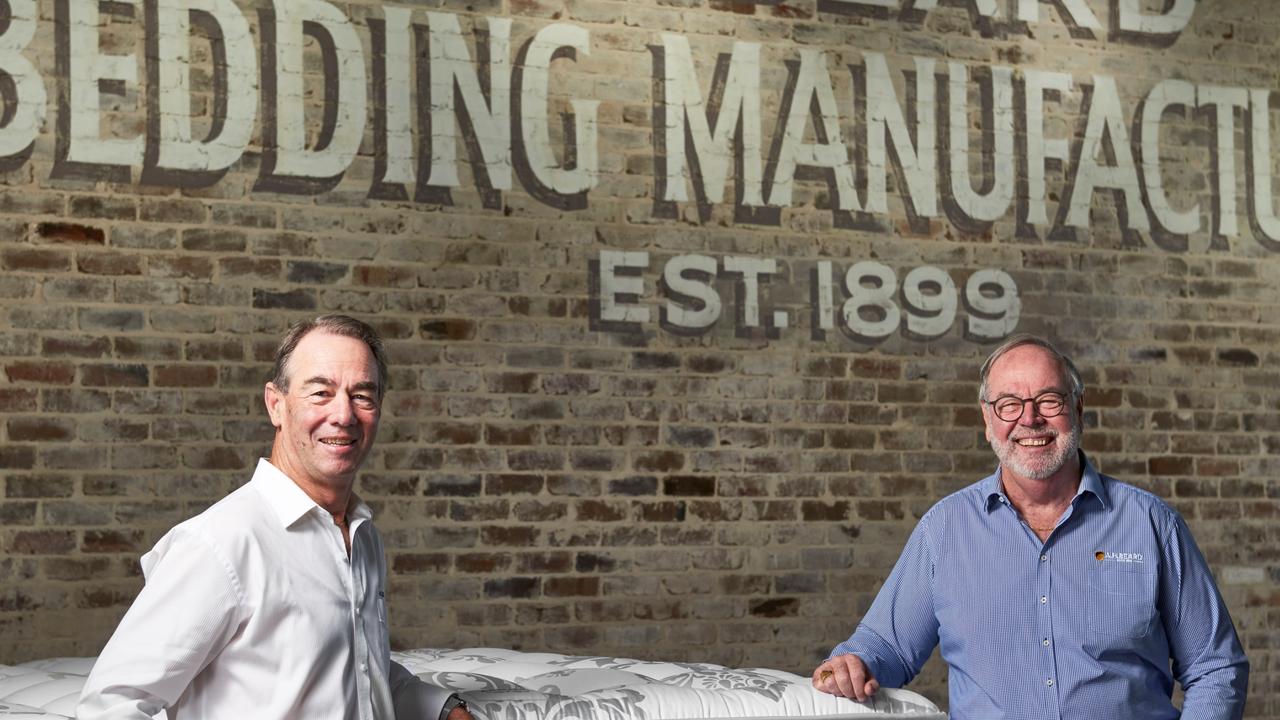
In many respects his move was akin to a profit downgrade, but not everyone sees the reality yet.
Foran, the former US Walmart boss and senior Woolworths executive, ranks as one of the best low-margin business bosses in the country and, given many key sustainability variables were outside his control, he also wasn’t about to add greenwashing to his company’s difficult financial position.
His move was not unexpected but if investors are demanding sustainability commitments then other bosses will risk stock price hits for similar moves.
The decision came in the same week Australia’s No.3 carrier, Rex, waved the financial white flag and, flanked by Treasurer Jim Chalmers and Climate Minister Chris Bowen, Ampol’s Matt Halliday unveiled memorandum of understandings with Grain Corp and IFM about the possible use of his Lytton refinery in Queensland as a sustainable aviation fuel hub.
On the surface, the latter is a big positive following earlier SAF studies by BP and Cargill at Kwinana and Airbus, Qantas and the Queensland government-supported Jet Zero.
The three events are not inextricably linked, but the timing helps explain the commercial and political reality facing the aviation industry.
Rex is easiest to explain – a long-running corporate governance snafu, in which major shareholder Lim Kim Hai thought he would take on the Australian airline duopoly without investing in fleet or marketing.

Successive governments have failed to implement basic industry reforms including as recommended by former Productivity Commission boss Peter Harris to do an audit on airport slots starting in Sydney to know exactly who uses what.
Transport Minister Catherine King has promised an audit stocktake, but just when this happens is not clear – and without the facts on the table, it’s difficult to make clear policy decisions to open the door to newcomers.
If former ACCC boss Rod Sims is right that Rex and Bonza were constantly at his door with competition complaints, question then what the regulator did about them.
Minister King has also promised an aviation white paper due for release mid year, which is now two months ago, but attempts to contact her office on the timing of the review were unsuccessful.
One issue to be covered by the white paper is SAF, with the fuel industry wanting mandates forcing the airlines to use biofuels for “X” per cent of their fuel needs, but this comes at a cost.
IATA says if the global aviation industry is to meet its climate commitments, then by 2050, 65 per cent of fuel needs to be SAF.
KPMG in a recent paper said it was more likely the industry would go somewhere to meet SAF guidelines half way and the rest would come from corporate offsets.
The Ampol-Lytton MOU is now standard form Albanese government energy policy. Companies agree to study a project, like SAF or as with Orica and Origin the hydrogen hub at Newcastle’s Kooragang Island, which commits the companies to nothing until the government shows either the colour of its money or commits to enabling supporting legislation.
Ampol’s Matt Halliday effectively said to Chalmers and Bowen, “we are in if you fulfil your side of the bargain with supportive policy”.

The Albanese government loves nothing better than a big announcement which stops a million miles short of an actual implemented decision. Companies like an MOU which makes it look like they are doing things and if nothing happens then it’s the government’s fault which is all good but at the end of the day it helps the country if things do get done, industries are started and the climate is helped.
Ampol’s SAF MOU includes GrainCorp, which failed earlier his year to win a lease at Kwinana in WA to build a crushing plant next to the proposed BP SAF terminal, which will use Nufarm’s carinata crops and canola.
The lease went to Cargill, which like BP is also waiting to see what the government has in mind before actually committing.
SAF is the only viable alternative liquid fuel for the aviation sector and given Australia’s clear natural comparative advantages would seem a perfect opportunity to potentially create over 25,000 new jobs, $10bn-plus a year in income by supplying the global aviation industry and helping the environment in the process. Trouble is, SAF right now is two to three times more expensive than traditional fuels and a mandate to use even 2 per cent SAF, as the EU is doing, will add between 9 and 25 per cent to ticket prices, according to the International Civil Aviation Organisation.
Singapore will shortly mandate that flights out of country must have minimum SAF levels, so the decision will eventually be taken out of the Australian government’s hands.
The question is whether the government wants to take a positive step to create an industry that will be in increasing demand or whether it will sit back and watch the rest of the world proceed.

King’s white paper is two months overdue, so presumably is due any day now and is meant to provide some sort of SAF policy framework.
Consider also whether King, Chris Bowen or Jim Chalmers are happy to go on the evening news to explain how, by helping cut national emissions by 10 per cent, Australian consumers will have to pay another $50 to fly between Sydney and Melbourne.
The fact is that, at least initially, the green transition means more expensive flights.
There are other steps around the issue such as using book and claim demand models.
A local company could book gallons of SAF from existing hubs like California which would be used by a US carrier to power one of its planes, then, say, Rex as the booker would claim the credits.
The global benefits would be more low-carbon flights and by centralising demand this would tend to make the Californian (or, say, Kwinana or Lytton hub) cheaper as production and demand increases.
That is the theory and Macquarie, for one, is backing Sky NRG, the Netherlands-based SAF platform company with a $290m investment last year.
KPMG says SAF capacity globally is now 1.3 billion litres, or 2 per cent of demand, but it is tipping that it will expand quickly to six billion litres by 2030.
Canva pokes watchdog
Software darling Canva’s blatant disregard for ACCC desires for mandatory merger disclosure, with its reported $320m AI acquisition Leonardo, is a huge embarrassment for the regulator.
It is now considering its next step, obviously starting with initiating its own inquiry.
Last month, the government circulated draft amendments including mandatory merger disclosures, and while release of the all-important notification threshold is now delayed, the Canva deal well and truly falls within the target range.
The changes are meant to go to parliament by year’s end.
Granted mandatory disclosure is not yet law, but this is the most blatant disregard for the ACCC’s notification plans since arguably the 2021 IVF clinic merger between now ACCC boss Gina Cass Gottlieb’s then client Virtus Health and Adora Fertility.
The regulator was unimpressed at the time and intervened to stop the deal. The same treatment can be expected for Canva.
Sunshine forecast
Expectations for the coming earnings season are low but MST’s Hasan Tevfik thinks the last half was the bottom and corporate trading updates will show some sunshine helped by tax cuts and utility rebates boosted by less chance of interest rate hikes.




Air New Zealand boss Greg Foran’s decision this week to withdraw from short-term climate commitments underlines the growing reality that carbon emissions are commercial decisions the airline’s experienced manager realised he couldn’t meet.